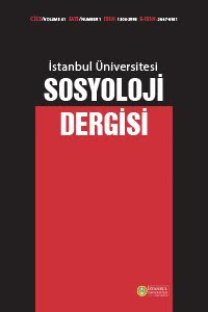Marshall Hodgson Then and Now
Hodgson, the man of conscience makes academics uneasy. As well he should. Yet his moral commitment, thevery thing that for so long made him a semi-pariah in academia, is a beacon of hope to a new generation ofreaders interested in alternatives to the present state of the post-9/11 Middle East field. A Quaker pacifist whowas interned in Camp Elkton, Oregon for refusing to serve in World War II, Hodgson was a man of principle andcourage whose quirky intelligence produced The Venture of Islam, a three volume textbook history of Islamiccivilization.
Keywords:
World history, Hodgson, Venture of Islam, Historiaography Civilization,
___
- Bell, D. (1965). The end of ideology: On the exhaustion of political ideas in the fifties. New York: Free Press.
- Burke, E. (2010). There is no orient: Hodgson and Said. Review of Middle Eastern Studies, 44(1), 13–19.
- Burke, E., & Mankin, R. J. (Eds.). (2018). Islam and world history: The ventures of Marshall Hodgson. Chicago: The University of Chicago Press.
- Cheddadi, A. (2018). Islamic history and world history. In E. Burke III & R. J. Mankin (Eds.), Islam and world history: The ventures of Marshall Hodgson. Chicago: The University of Chicago Press.
- Dittberner, J. L. (1979). The end of ideology and American social thought, 1930-1960. New York: UMI Research Press.
- Dunn, R. E. (Ed.). (1999). The new world history. New York: Bedford St. Martins.
- Fisher, S. N. (1960). The Middle East: A history. New York: Knopf.
- Grabar, O. (2007, December). Personal communication.
- Hodgson, M. G. S. (1963). The interrelations of societies in history. Comparative Studies in Society and History, 5, 227–250.
- Hodgson, M. G. S. (1993). Rethinking world history: Essays on Europe, Islam and world history (E. Burke III, Ed.). Cambridge: Cambridge University Pres.
- Lapidus, I. R. (1988). Islamic societies. Cambridge: Cambridge University Press.
- Lewis, B. (1958). The Arabs in history. Oxford: Oxford University Press.
- Lockman, Z. (2004). Contending visions of the Middle East: The history and politics of orientalism. Cambridge: Cambridge University Press.
- Said, E. (1997). Covering Islam. How the media and the experts determine how we see the rest of the world. New York: Vintage.
- Tanner, N. M. (1981). On becoming human. Cambridge: Cambridge University Press.
- Tanner, N. M. (1982). The nuclear family in Minangkabau matriliny: The mirror of disputes. Journal of the Humanities and Social Sciences of Southeast Asia, 138(1), 129–151.
- Waxman, C. (Ed.). (1969). The end of ideology debate. New York: Funk & Wagnalls.
- ISSN: 1304-2998
- Başlangıç: 2020
- Yayıncı: İstanbul Üniv. Edebiyat Fak. Sosyoloji Böl.
Sayıdaki Diğer Makaleler
Homo Ludens Diyarında Homo Faber Olarak Araştırmacı
Sınır-Ötesi Bir Uygarlık Operasyonu: Talcott Parsons’ın Uygarlık Okuması
Kaideden İstisnaya: Gelişmecilik ve Kültürelciliğin Ötesinde Tarihsel Sosyolojinin İmkânları
Bir TÜBİTAK SOBAG Araştırma Projesinin (107k039) Hikâye(lendirilme)si
Alman Tarihçiliğinin Alameti Farikası “Devlet Merkezlilik” midir?
Mehmet Ali AKYURT, İsmail COŞKUN
Yeni (Proje) Konutlar ve Yeni Çekirdek Aileler
Ayşen ŞATIROĞLU, Melike AKBIYIK
Bütünleşmiş Kültürün Toplumsal Dinamikleri: Sorokin’in Uygarlık(lar) Okuması
